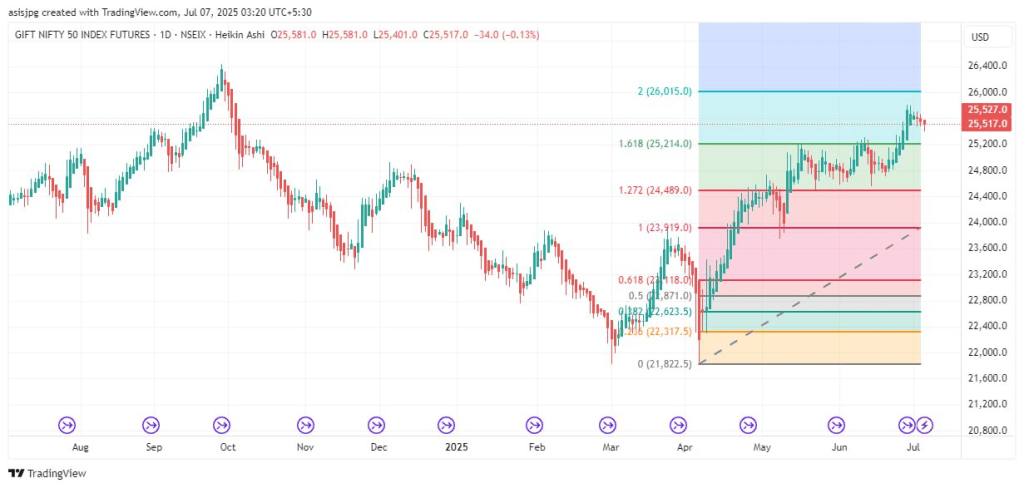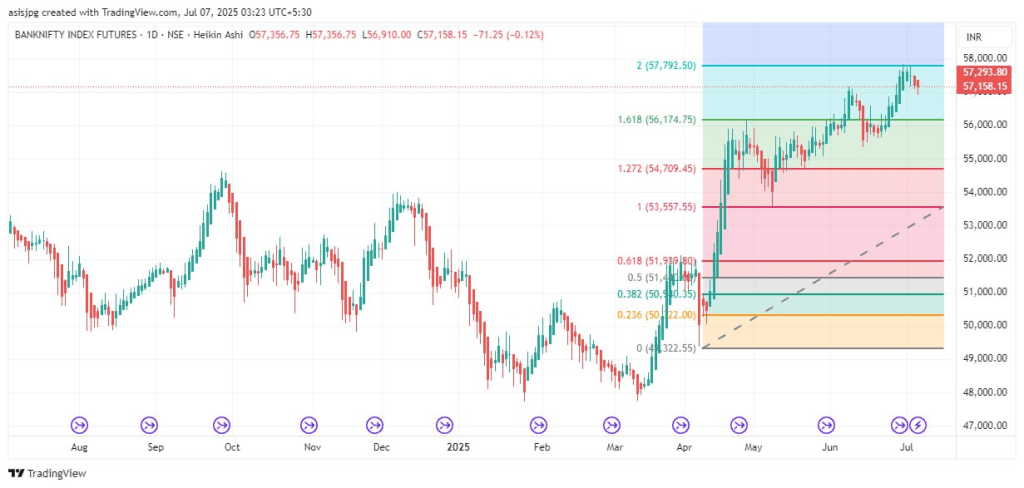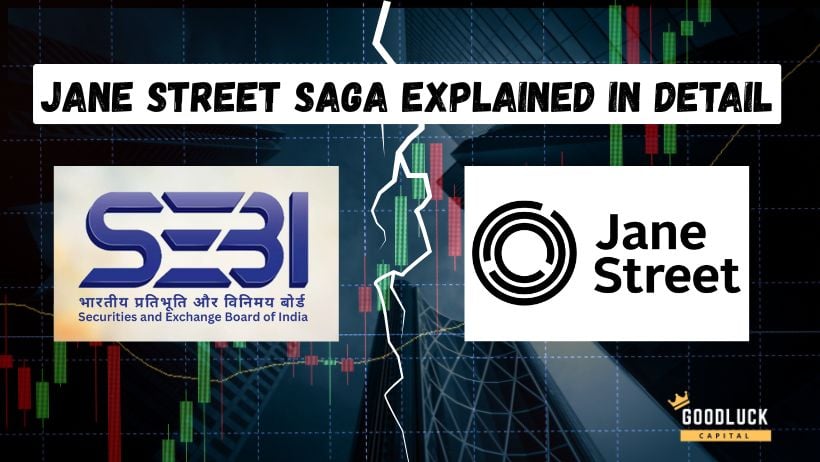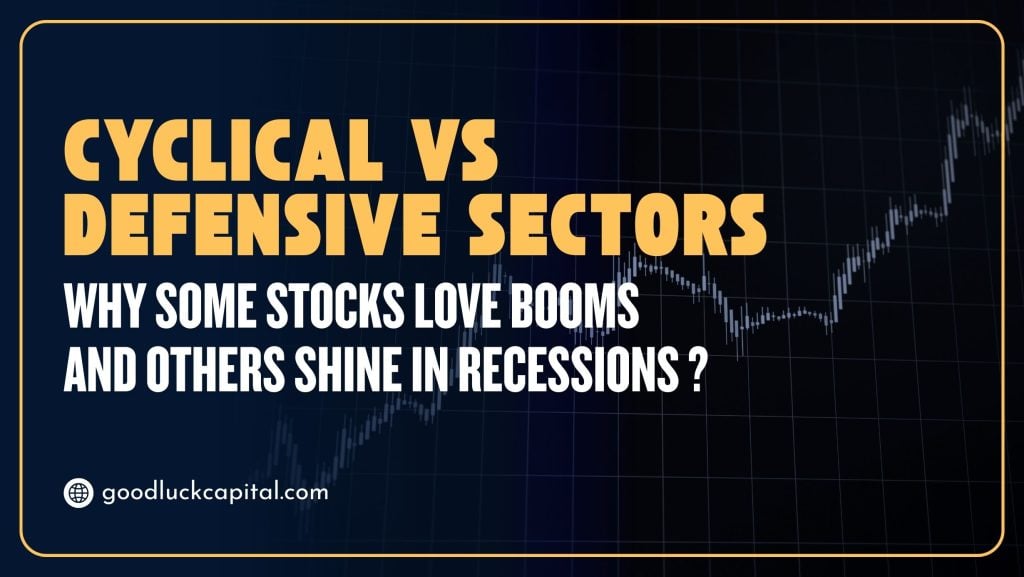Introduction
In a dramatic turn of events, the Securities and Exchange Board of India (SEBI) issued an interim order on July 3, 2025, barring Jane Street Group LLC, a U.S.-based proprietary trading firm, from participating in India’s securities market. The regulator accused the firm of orchestrating one of the most audacious market manipulation schemes in Indian financial history, allegedly reaping unlawful gains of ₹4,843 crore (₹48.43B ~$0.57B) through smart options derivative (FNO) trading strategies (quant-HFT). This unprecedented crackdown has sent ripples through India’s booming FNO market, raising questions about market integrity, the entire structure of the FNO market, regulatory oversight, and the future of high-frequency trading (HFT) in one of the world’s largest financial ecosystems. For retail investors, particularly those searching for swing trading stock picks amid this turbulence, the episode highlights both the risks and potential opportunities that may emerge as the market adapts to stricter regulatory norms.
The Jane Street Saga: What Happened?
Jane Street, founded in 2000, is a global quantitative trading firm renowned for its high-frequency trading and algorithmic strategies. With over 3,000 employees across offices in New York, London, Hong Kong, Singapore, and Amsterdam, the firm has established itself as a powerhouse in trading equities, derivatives, and exchange-traded funds (ETFs). In India, Jane Street (JS) began operations in December 2020, leveraging the country’s rapidly growing derivatives market, which accounts for nearly 60% of global equity derivative trading volumes.
SEBI’s 105-page interim order (July 3) alleges that Jane Street, through its four entities—JSI Investments, JSI2 Investments Pvt Ltd, Jane Street Singapore Pte Ltd, and Jane Street Asia Trading—engaged in manipulative trading practices, particularly targeting the Bank Nifty and Bank Nifty indices. The regulator identified two key strategies: the “Intraday Index Manipulation Strategy” and the “Extended Marking the Close Strategy.” These tactics reportedly involved large-scale trades designed to artificially influence index prices, especially on expiry days, to maximize profits in the options market.
Clarification by Jane Street
Jane Street has publicly disputed SEBI’s findings. In an emailed response to Reuters, the firm stated, “Jane Street is committed to operating in compliance with all regulations in the regions we operate around the world,” and indicated it disputes the interim order’s findings. They further noted they will “further engage with the regulator” to address the issue.
Legal and Regulatory Engagement
Jane Street has signaled its intent to challenge SEBI’s interim order, which is not a final ruling but an interim order and a temporary ban pending further investigation. The firm has the option to file a reply or objections within 21 days of the July 3, 2025, order or challenge it judicially through the Securities Appellate Tribunal (SAT). Jane Street already filed defenses in August 2024 (before the ban) and is prepared to take the matter to court or regulatory bodies. Its response suggests it views its actions as sophisticated but lawful trading practices, likely involving algorithmic and high-frequency trading. The firm may argue that its trades were designed to capitalize on market inefficiencies rather than to manipulate prices.
Claim of Hedging
Jane Street has reportedly described its trading activities as “hedging” rather than manipulative, suggesting their strategies were legitimate risk management practices. However, SEBI’s order characterizes these actions as deliberate manipulation, particularly citing the firm’s disregard for a February 2025 caution from the National Stock Exchange (NSE) and continued “egregious behaviour” in May 2025. The firm emphasized its commitment to regulatory compliance globally, suggesting that its trading strategies were legitimate and not manipulative. Jane Street has portrayed its actions as part of standard arbitrage and hedging strategies, rather than intentional market manipulation.
No Detailed Public Clarification by Jane Street so far
Beyond disputing the allegations and affirming compliance, Jane Street has not released a detailed public statement explaining its trading strategies or directly addressing SEBI’s specific claims. The firm is known for its secrecy, discouraging employees from publicizing details about its operations, which may explain the limited response. Jane Street has expressed its intent to cooperate fully with SEBI, stating it will continue to engage with the regulator to address the allegations. This includes the possibility of filing a reply or requesting a hearing within the 21 days provided by SEBI to respond to the interim order.
SEBI’s 105-page interim order details how Jane Street allegedly manipulated the Bank Nifty index
- Aggressively buying/selling constituent stocks futures in the morning (1st hour) to inflate/deflate the index
- Building large short/long; i.e., opposite positions in index options (OTM) (generally 40-50x for Futures positions)
- Selling the stocks/futures later (after the EU session opens or in the last hour of the market) to depress/inflate the index, profiting from the opposite options positions.
This strategy, executed particularly on expiry days, misled retail investors and violated SEBI’s Prohibition of Fraudulent and Unfair Trade Practices (PFUTP) regulations. Despite an NSE warning in February 2025, Jane Street allegedly continued these practices, prompting SEBI to ban the firm and its entities (JSI Investments, JSI2 Investments Pvt Ltd, Jane Street Singapore Pte Ltd, and Jane Street Asia Trading Ltd) and impound ₹4,843 crore in alleged unlawful gains. SEBI highlighted that Jane Street continued its trading patterns after NSE’s February 2025 advisory, which the regulator described as “egregious behaviour” and a “cynical violation.” Jane Street’s defenses in August 2024 and its commitment to compliance indicate it may challenge SEBI’s interpretation of these trades as manipulative rather than strategic.
The Alleged Manipulative Strategies by Jane Street
Intraday Index Manipulation
SEBI claims Jane Street executed a “pump-and-dump” scheme, particularly on the Bank Nifty index. In the morning session, the firm allegedly purchased substantial quantities of Bank Nifty stocks and futures, artificially inflating the index. Simultaneously, it built large bearish positions in the options side by selling deep ITM call options at inflated premiums and buying OTM put options at throwaway prices. Later in the day, in the last 60-30 minutes of trade, Jane Street would reverse these positions, suddenly basket/bulk selling off its intraday bank stock holdings/long positions in to crash the index, thereby profiting from the bearish options trades. For instance, on January 17, 2024, SEBI noted that Jane Street made a single-day profit of ₹734.93 crore through this strategy, after netting ₹673.4 crore after losses in other segments.
Extended Marking the Close
This strategy involved aggressive trading in the final hours of expiry days to influence the closing prices of indices, which directly affect the settlement value of derivative/options contracts. SEBI highlighted instances where Jane Street placed large orders to move the Nifty and Bank Nifty indices, even after receiving a caution letter from the National Stock Exchange (NSE) in February 2025. The firm’s actions were described as showing “willful disregard” of regulatory guidance.
Mirror and Circular Trading
SEBI also accused Jane Street of using “mirror trading,” where buy and sell orders were placed simultaneously between its entities to create an illusion of active trading without real market risk. Additionally, circular trading between group entities inflated trading volumes, particularly in the final minutes before expiry, further distorting prices.
Between January 2023 and March 2025, Jane Street reportedly amassed profits of ₹43,289 crore from index options, offset by losses in other segments, resulting in a net gain of ₹36,502 crore. SEBI deemed ₹4,843 crore of these profits as unlawful, ordering their deposit into an escrow account and imposing a freeze on Jane Street’s India-linked accounts.
Immediate Market Reaction
The SEBI order triggered an immediate selloff in capital market-linked stocks, wiping out ₹12,000 crore in market capitalization on July 4, 2025. Nuvama Wealth Management, Jane Street’s domestic trading partner, saw its shares plummet by 11.26%, despite not being directly implicated. Other firms, including BSE, Angel One, and CDSL, experienced declines of 6% and 2%, respectively, reflecting investor concerns about the broader impact on market intermediaries. The sharp reaction underscores the Indian market’s reliance on proprietary trading firms like Jane Street, which reportedly account for nearly 50% of options trading volumes. The absence of such a significant player could lead to reduced liquidity and increased volatility in the short term, particularly in the derivatives segment. The ban might cause other HFT firms to scale back, potentially lowering trading volumes and affecting counterparties.
Potential Impacts on the Indian Stock Market
Short-Term Implications
- Liquidity Concerns: Jane Street’s role as a liquidity provider in India’s derivatives market was substantial. Its exit could widen bid-ask spreads and increase volatility, particularly in index options like Bank Nifty, which have already seen weekly contracts discontinued. Retail investors, who contribute around 35% of options trading volumes, may face higher transaction costs and reduced market efficiency.
- Decline in Trading Volumes: The regulatory action has raised caution among other HFT firms, potentially leading to a pullback in activity. This could reduce overall futures and options (F&O) volumes, impacting the revenue of stock exchanges and brokers. Zerodha founder Nithin Kamath highlighted the concentration risk, noting that a decline in proprietary trading could ripple through to retail participation.
- Collateral Damage to Intermediaries: Firms like Nuvama, despite not facing direct allegations, have suffered due to their association with Jane Street. Investors are wary of potential revenue losses for brokers and exchanges heavily dependent on derivatives trading, which could lead to further stock price corrections in the near term.
Long-Term Implications
- Strengthened Regulatory Oversight: SEBI’s decisive action signals a commitment to curbing manipulative practices, potentially leading to stricter rules for HFT and algorithmic trading. The regulator has already tightened derivatives trading norms since July 1, 2025, and this saga may accelerate reforms to enhance real-time monitoring and transparency. This could restore investor confidence but may also deter some foreign players wary of increased scrutiny.
- Market Integrity and Investor Trust: The crackdown is seen as a milestone in protecting retail investors, who often bear the brunt of manipulative strategies. By setting a precedent, SEBI aims to reinforce market fairness, which could attract long-term capital inflows. However, the exposure of systemic vulnerabilities, such as expiry-day manipulations, has eroded some trust, necessitating ongoing reforms.
- Tax and Legal Ramifications: The Indian income tax department is likely to investigate Jane Street’s structure under the General Anti-Avoidance Rules (GAAR), as profits were reportedly routed through its Singapore-based FPI arm to leverage tax treaty benefits. This could lead to significant tax liabilities and set a precedent for scrutinizing foreign portfolio investors’ (FPIs) operations in India.
- Shift in Market Dynamics: The absence of Jane Street may create opportunities for other global trading firms like Citadel Securities and Optiver, which are expanding in India. However, these firms may adopt more cautious strategies to avoid similar regulatory action, potentially reshaping the competitive landscape of India’s derivatives market.
Broader Context: The Indian Derivatives Market
India’s derivatives market has seen explosive growth, with options premiums rising 11 times between 2020 and March 2025, driven by a surge in retail investor participation post-COVID. The country now hosts the world’s largest derivatives market by contract volume, attracting global players eager to capitalize on its liquidity and growth potential. However, this rapid expansion has exposed vulnerabilities, as evidenced by Jane Street’s alleged manipulations.
The saga also ties back to a 2024 legal dispute in the U.S., where Jane Street sued Millennium Management for poaching two former employees who allegedly stole/divulged a proprietary trading strategy that generated $1 billion in profits in India in 2023. The revelation that this strategy was applied in India’s options market brought initial attention to Jane Street’s activities, prompting SEBI’s investigation.
Conclusion
The Jane Street (JS) FNO strategy is not something new or Rocket Science. They manipulated Bank Nifty (BNF), which is an index of only 12 banks & financial stocks, and out of them, HDFC and ICICI Bank have over 50% weightage. JS took a long position in BNF through HDFC and ICICI Bank stock futures in the 1st hour of trading, while at the same time bought OTM (Out of Money) BNF Puts at very low prices and sold ITM (In the Money) calls 40-50x times. As a result of a long build-up in BNF/ main constituents, BNF moves up; JS booked some profit in longs and then suddenly sold those at very large volume (basket selling) in the last hour of trading. As a result, the whole market, especially BNF, plunged, resulting in huge profits in the short side (OTM Put options buy and ITM Call option sell), even after adjusting for some loss in the initial longs.
This option strategy (unlimited gain with limited pain) is not new and ‘secretive’. Any experienced trader, knowing various options strategies with access to billions of dollars as margin money, can do this even without the help of a sophisticated algo/quant system. The Jane Street of Wall Street has not done anything illegal in India, but it exploited a loophole in the Indian FNO market (system), where Futures and Options are both permitted in individual stocks. This makes the Indian capital market vulnerable to easy manipulation at the cost of retail small traders, most of whom are now option addicted for easy gain and treating the stock market as a big casino. Jane Street, like big Wall Street HFT firms, is treating the Indian FNO market as an ATM along with their Indian counterparts; all at the cost of Indian retail clients, 95% of whom are losing badly.
Jane Street, like pump & dump schemes, may be very tough or even not possible in the US, as only options are allowed in individual stocks, not futures. The absence of single-stock futures, combined with the U.S.’s larger market (~$50T vs 5T India), stricter regulations, and advanced surveillance, makes a direct replication of the Jane Street India Bank Nifty scam unlikely. However, variations using index futures or options could occur, though they’d face significant hurdles.
The Jane Street saga marks a pivotal moment for India’s capital markets, highlighting both the opportunities and risks of a booming derivatives ecosystem. SEBI’s swift action demonstrates a commitment to safeguarding market integrity, but it also exposes the challenges of regulating sophisticated algorithmic trading. While short-term disruptions in liquidity and trading volumes are likely, the long-term outlook suggests a stronger, more transparent market, provided SEBI can plug systemic gaps. As the investigation continues and Jane Street prepares its defense, the outcome will likely shape the future of HFT, foreign investment, and regulatory oversight in India’s financial markets. For retail traders seeking stability beyond speculative FNO bets, exploring positional share trading advice in India may provide a more disciplined path toward wealth creation. For now, the saga serves as a stark reminder that even the most advanced trading strategies must operate within the bounds of fairness and transparency.
Looking ahead
SEBI has indicated that its probe will expand to include other indices (e.g., Nifty 50, Sensex) and trading patterns, suggesting Jane Street’s clarifications have not yet resolved the regulator’s concerns. The firm’s ability to unwind existing positions within three months in a non-disruptive manner, as allowed by SEBI, may depend on its cooperation. Jane Street has not admitted to any wrongdoing and is likely to frame its trades as legitimate market-making or arbitrage, challenging SEBI’s classification of “manipulation to the SAT, then HC, and ultimately to the SC. Thus, it may be a long legal battle, but the implications on the Indian stock market credibility and trust may be questionable.
Potential Market Impact
On Friday, July 4, Nifty and Bank Nifty, along with HDFC and ICICI Bank, stumbled from the opening session high primarily on the Jane Street fiasco. Looking ahead, SEBI/Government may deepen its probe in a way that does not cause any financial stability issues for Dalal Street. SEBI may also deepen its scrutiny related to the recent splurge in HFT/Quant trading involving many Indian firms. SEBI/Indian Government may also follow the US FNO regulatory policies like no coexistence of Futures & Options in single stocks; either Futures or Options; SEBI may also ban options trading altogether in single stocks or even in indices as options have tuned the Indian stock (FNO) market like a big casino, exploiting addicted retail traders, while big institutions and brokerages are flying high.
Apart from market/FNO volume/liquidity or the short term, there may be some long-term implications if SEBI/Government takes some stringent regulatory reforms to stop the Option casino in the Indian stock market. This may be negative for banks & financials, having stock trading/broking operations. The Jane Street uncertainty may drag the market despite some short-term optimism over the US-India mini trade deal.
Technical outlook: Nifty Future and Bank Nifty Future
Looking ahead, whatever may be the narrative, technically Nifty Future (CMP: 25500) now has to sustain over 25900-26000 for a further rally to 26100/26300-26400/26500; otherwise, sustaining below 25850-25450, Nifty Future may fall to 25200/25000-24900/24700-24300/24000 and 23900/23750-23600/23350 and 23400/23100-22600/22200 and further 22000-21700 the coming days.

Technically, Bank Nifty Future (57500) now has to sustain over 58000 for a further rally to 58500/58900-60500/61000 and a further 61500-65750 in the coming days; otherwise, sustaining below 57800, BNF may again fall towards 57000/56500-56000/54900 and 54500/54000-53500/53000 and 52500-52000/51500 and further 51000/50500-50000/49700 and 49200-47700 in the coming days.






